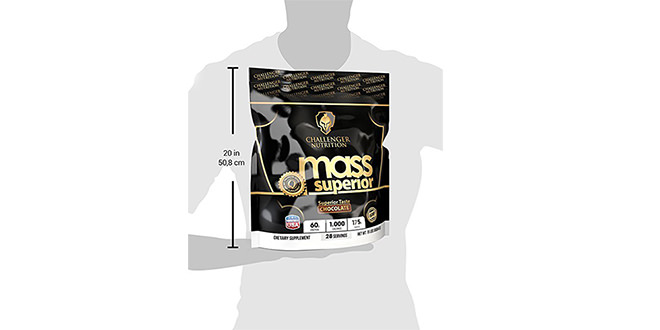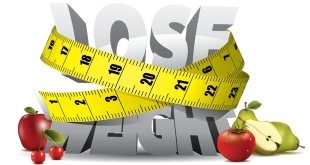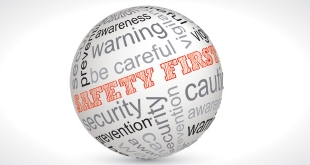Consuming your protein in liquid form is an easy way to get more of it into your body. Protein shakes and smoothies are great for post-workout recovery, building mass, getting stronger, and when dieting for weight loss to reduce the amount of muscle you lose.
Before settling on one product over another, you want to make sure you know exactly what you’re paying for. There’s a lot to consider.
For instance, the most expensive products won’t likely be the best if you’re on a budget. These companies price their products mainly based on reputation or hype, and can seriously over-inflate how much you spend because of this. Then there are other issues to consider such as over-hyped protein formulations that really won’t offer much benefit at the end of the day.
Follow this short and simple protein buying guide, and you’ll find you’ll save money while still getting the highest quality product available to you:
First and foremost: Look for companies with a reputation
This is really important. Look the manufacturer up online before you buy anything. Even if you’re buying your protein at your local GNC, etc. You want to make sure they’ve been around a long while, or that authorities you trust recommend them. Walmart, GNC, Target and others are frequently found to be carrying proteins that are a complete scam and waste of money (learn more).
Protein supplements aren’t hard to make. However, you don’t want to buy something that some startup health food supplement manufacturer cooked up in their basement either! At a minimum, look for a “USP” logo on the packaging.
USP stands for “United States Pharmacopoeia Convention”: this government non-profit performs laboratory testing on the products containing their seal of approval against the ingredients listed on the manufacturer’s label. This ensures you’re getting what the manufacturer states you’re paying for. The USP tests the products as they are manufactured, and also randomly pulls them off store shelves to ensure the manufacturer’s 100% compliant in adhering to their strict standards.
Avoid the protein hype
When choosing protein powder, you’ll be faced with numerous claims and studies telling you how much bigger you’ll get from drinking whey isolate vs. casein, or how “concentrate” is the ultimate in promoting recovery after a strenuous workout. Or that beef protein in a can is the only way to get stronger.
You’ll also see minor evidence that whey protein is best directly before and after a workout, while casein and other forms are better for protecting your gains while you sleep because it takes longer to digest. Manufacturers all have studies to back these claims, but you have to read the fine print of said studies. Mark Sisson of Mark’s Daily Apple details what’s true and what’s just hype in this informative post on his site.
If you’ve tried a certain product and think a more expensive protein makes you stronger or makes you build muscle faster, then keep using it. In reality, as much as you’ll want to buy into the dream you’re being sold; as long as the protein itself comes from a pure source and extracted using exacting standards, the cheaper stuff is just as good as the stuff you pay $60 – $100 for a pound or two.
Mass gainers are not protein powders
And unless you’re a hard gainer trying to bulk up fast, you shouldn’t waste your money on them. If you’re buying a protein powder, then adding more protein to your diet is the goal. Mass gainers contain more sugar than they do anything of real value to someone looking for a high-quality protein source.
For instance, look at the stats for the popular mass gainer produced by Optimum Nutrition (ON) called “Serious Mass”:
Single serving size of 2 scoops (334g):
- 1250 calories
- 252g carbs
- 50g protein
- 4g fiber
- 5g fat
A person could make the argument that this is a shockingly low-fat product when it comes to weight gainers, but after subtracting the carb count, you’re only left with 82 grams, of which protein makes up a little over half what remains. Still, if the protein is what you want, you’re paying a heck of a lot of money on mostly sugar, and consuming up to 10 times the calories found in products containing at least 90 – 100% protein.
Look for natural protein powders
Since we’re talking about getting the highest quality protein possible, for the most reasonable price, you have to read the labels. The last point went over this, but let’s expand it a little more. You want to look for a protein powder that has as few ingredients as possible.
The very best will have 5 – 7 ingredients, with your protein source, or sources being listed first. If you’re buying something that has added BCAA’s (branched chain amino acids), nitric oxide, glutamine, creatine, and other ingredients known to boost performance, muscle growth, and recovery, you can consider these to be “beneficial ingredients”. That is, as long as the product contains a serving of that ingredient that’s recommended to be beneficial by trustworthy sources.
If there’re more than 10 ingredients listed, you’re definitely getting ripped off in either value or price, or both. And, often, even if you’re getting lots of beneficial ingredients in a product, you’d save a lot more money buying everything separately.
Summary
You’ve essentially learned everything you need to know about buying protein powder and not getting ripped off:
- Purchase only from established, trusted sources – look for a “USP” logo.
- Don’t buy into the hype – the quality of the source is most important.
- Mass gainers aren’t protein powder: i.e., you’re paying for a lot of sugar and other ingredients you probably don’t need.
- Look for high-quality protein sources listed on the package, with minimal other added ingredients.
That’s all you really need to know. Use these tips next time you need some protein, and you’ll probably find that you’ve been paying way more than you need to, and likely getting way less value than you deserve for those dollars spent.
 Best Home Gym Reviews and Tips for Your Home Gym
Best Home Gym Reviews and Tips for Your Home Gym






